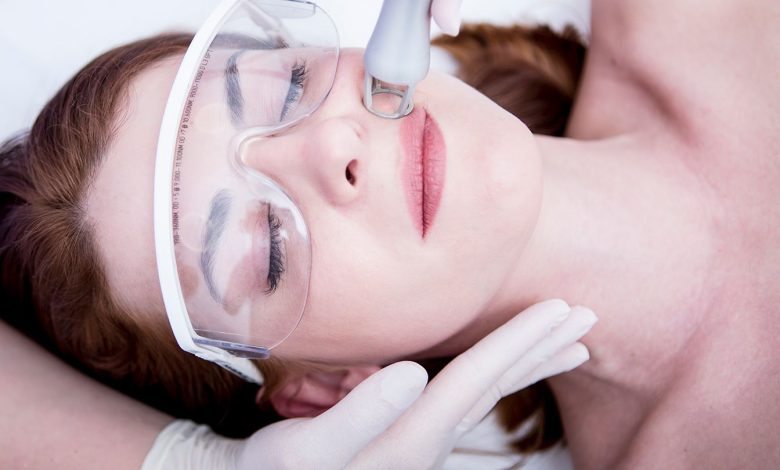How to Choose the Right Skin Treatment: Expert Tips from Top Plastic Surgeons in the USA

Navigating the world of skin treatments can feel overwhelming, especially with an abundance of options available today. To effectively choose the right skin treatment, focus on understanding your specific skin needs and consult with trusted professionals. The expertise of leading plastic surgeons in the USA can significantly enhance your decision-making process.
Researching the best skin specialists in the USA is essential for ensuring you receive appropriate advice and treatment tailored to your skin type. High-quality practitioners will guide you through the multitude of treatments, such as chemical peels, laser therapy, or injectables, to find the most effective solution for your concerns.
Understanding the qualifications and experience of potential specialists allows you to make informed choices about your skin care. This blog post will equip you with valuable insights and expert tips to help you confidently choose the best skin treatment for your needs.
Understanding Your Skin Treatment Options
Choosing the right skin treatment involves a thorough understanding of your specific concerns and the solutions available. You need to assess your skin’s conditions, weigh the pros and cons of various procedures, and keep up with the latest technologies that can enhance your treatment experience.
Assessing Skin Concerns and Goals
To begin, you should identify your primary skin concerns. Common issues include:
- Acne: Persistent breakouts can lead to scarring and emotional distress.
- Aging: Fine lines, wrinkles, and loss of elasticity are natural over time.
- Hyperpigmentation: Dark spots and uneven skin tone can affect your complexion.
Define your goals clearly. Are you looking for immediate results, or is a long-term solution preferable? Taking the time to evaluate these aspects can help tailor your treatment. Consulting with seasoned professionals can provide expert skin care advice to ensure you choose options that align with your personal needs and expectations.
Comparing Invasive and Non-Invasive Procedures
Understanding the differences between invasive and non-invasive treatments is crucial.
- Invasive procedures: These typically involve surgery or energy-based methods that alter skin structure. Examples include facelifts and laser resurfacing. They often provide dramatic results but may require longer recovery times.
- Non-invasive procedures: These include treatments such as chemical peels, microdermabrasion, and fillers. They generally involve minimal downtime and are suitable for various skin types.
Each option has its risks and benefits. You should carefully consider how much time you can commit to recovery and your desired outcome when comparing these approaches.
Exploring Latest Technologies in Skin Treatments
Staying informed about advancements in skin treatment can enhance your options. Techniques such as:
- RF Microneedling: Combines microneedling with radiofrequency to stimulate collagen.
- LED Therapy: Utilizes different wavelengths of light to target specific skin issues like acne or aging.
These innovative technologies tend to deliver effective results with less downtime. Regularly consult with professionals specializing in skin treatment options in the USA to explore the most suitable treatments tailored to your needs and skin type. This ongoing education ensures you are making informed decisions about your skin health.
Selecting the Right Plastic Surgeon
Choosing the right plastic surgeon is a crucial step in achieving your desired skin treatment outcomes. By identifying skin plastic surgeons in the USA, understanding selection criteria, and preparing pertinent questions for consultations, you can make an informed decision that prioritizes your safety and satisfaction.
Identifying Top-rated Skin Surgeons
To begin your search, focus on board-certified plastic surgeons. The American Board of Plastic Surgery (ABPS) certifies qualified professionals. You can check their certifications online for assurance.
Seek recommendations from trusted sources, such as friends, family, or primary care physicians. Online reviews and patient testimonials can provide valuable insights. Look for surgeons with a strong reputation in specific procedures relevant to your needs.
Consider those affiliated with accredited medical facilities. Surgeons who operate in reputable hospitals tend to follow higher standards of care.
Criteria for Choosing a Qualified Surgeon
Several key criteria should guide your decision-making:
- Experience: Verify how long the surgeon has been practicing and their experience with your desired procedure.
- Specialization: Confirm if the surgeon specializes in the specific skin treatment you’re considering.
- Communication Skills: Your surgeon should be approachable, attentive, and able to explain procedures clearly.
- Patient Care: Look for a surgeon who prioritizes patient comfort and addresses your concerns with empathy.
- Before-and-After Photos: Review cases of past patients to gauge the surgeon’s skill level and aesthetic style.
Questions to Ask During Your Consultation
During your consultation, ask the following questions to assess suitability:
- What is your educational background and board certification status?
- How many procedures similar to mine have you performed?
- What are the risks associated with this procedure, and how do you mitigate them?
- Can you provide patient testimonials or references?
- What kind of post-operative care do you offer?
These questions can help clarify the surgeon’s qualifications and approach. Take note of how they respond; their willingness to engage can indicate their commitment to your care.
Frequently Asked Questions
Understanding how to select the right skin treatment involves knowing what qualifications to look for in a plastic surgeon, establishing an effective skincare routine, and recognizing popular cosmetic procedures. This section addresses common inquiries that can help guide you in your journey toward healthier skin.
What criteria should I use to evaluate the qualifications of a plastic surgeon?
When evaluating a plastic surgeon, check for board certification by recognized organizations such as the American Board of Plastic Surgery. Look for relevant experience, particularly in the procedures you are considering. Patient reviews and before-and-after photos of previous work can also provide insight into their expertise.
What is considered the best skin care routine for aging skin?
For aging skin, a routine should focus on hydration and protection. Incorporate a gentle cleanser, a hydrating toner, serums rich in antioxidants, and moisturizers that contain hyaluronic acid or peptides. Daily sunscreen application is crucial to prevent further damage from UV rays.
Can you explain the correct order of application for skin care products?
The correct order for applying skincare products is generally: cleanser, toner, serum, eye cream, moisturizer, and finally, sunscreen. This order ensures that each product can effectively penetrate the skin without barrier interference from other layers.
How can I achieve the best possible skin health?
To achieve optimal skin health, maintain a balanced diet rich in vitamins and minerals, stay hydrated, and get adequate sleep. Regular exercise improves circulation and can promote healthier skin. Establishing a consistent skincare routine tailored to your skin type is also vital.
What are the most popular cosmetic procedures in the United States?
Some of the most popular cosmetic procedures in the United States include Botox injections, dermal fillers, chemical peels, and laser hair removal. These treatments are often sought for their effectiveness in enhancing appearance with minimal downtime.
How do dermatologists recommend altering skin care routines in your 60s?
In your 60s, dermatologists often recommend switching to more hydrating products. Look for gentler cleansers and richer moisturizers. Actively incorporate anti-aging ingredients like retinoids and vitamin C, while ensuring to prioritize sun protection. Regular check-ins with a dermatologist can help adjust your routine as your skin changes.






